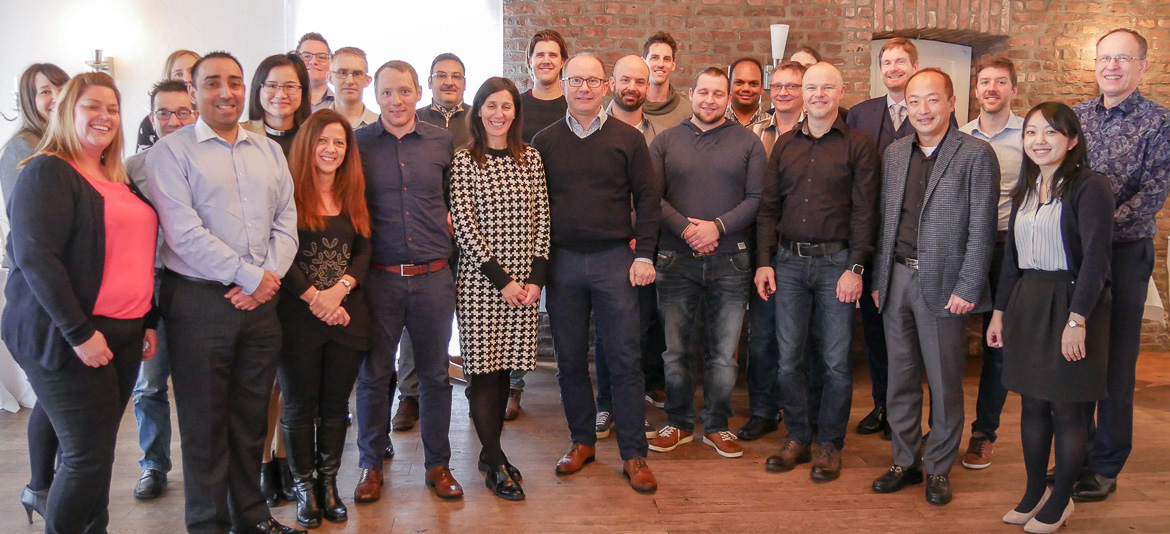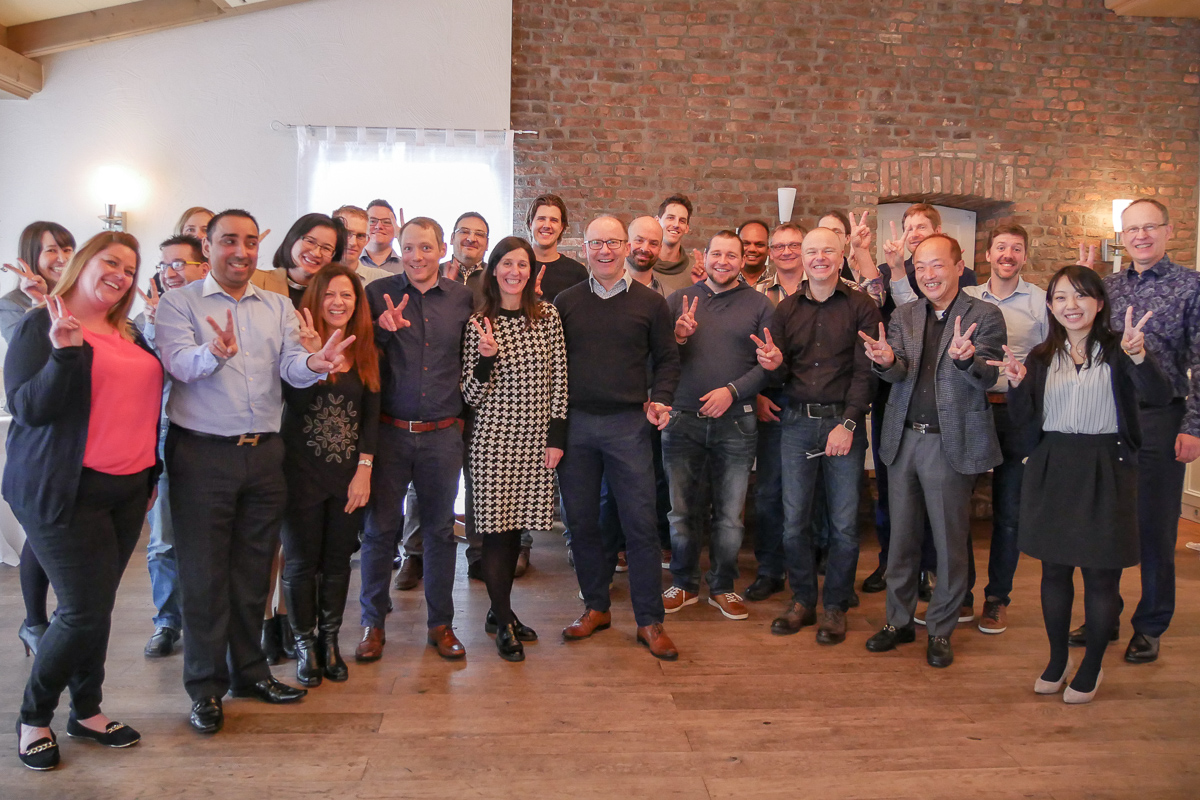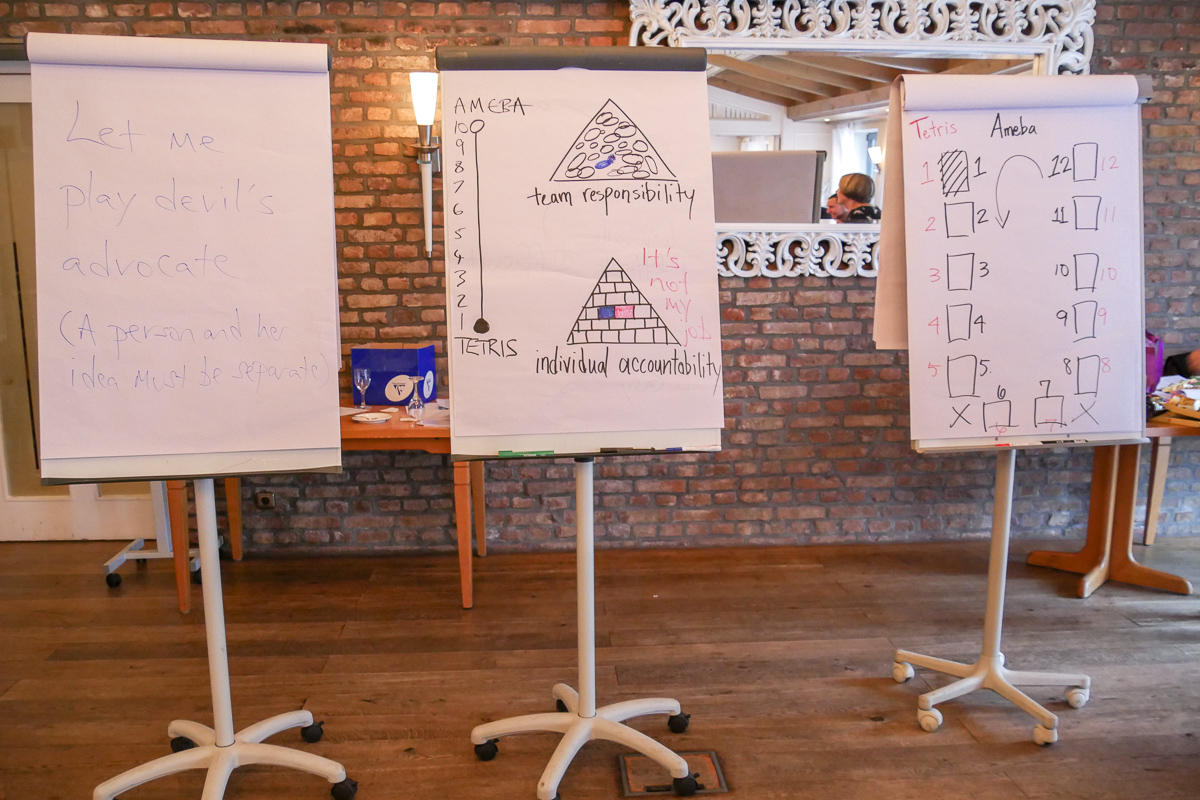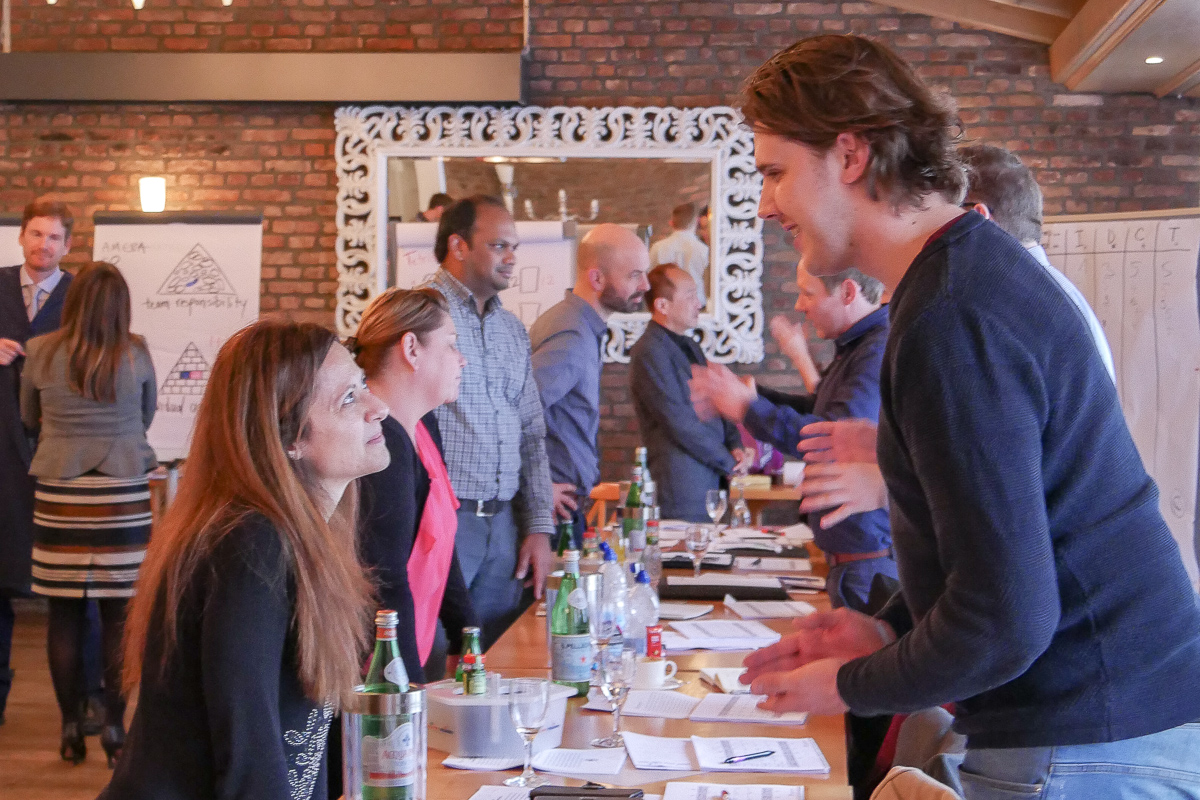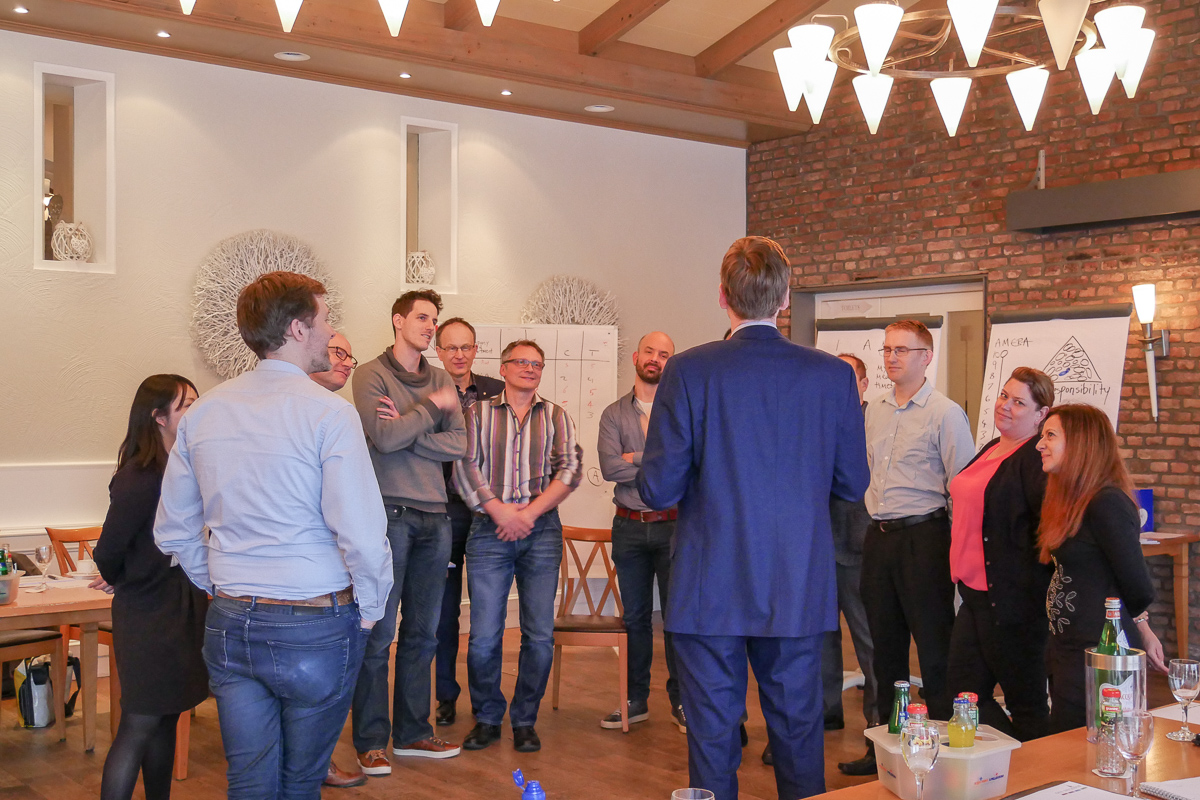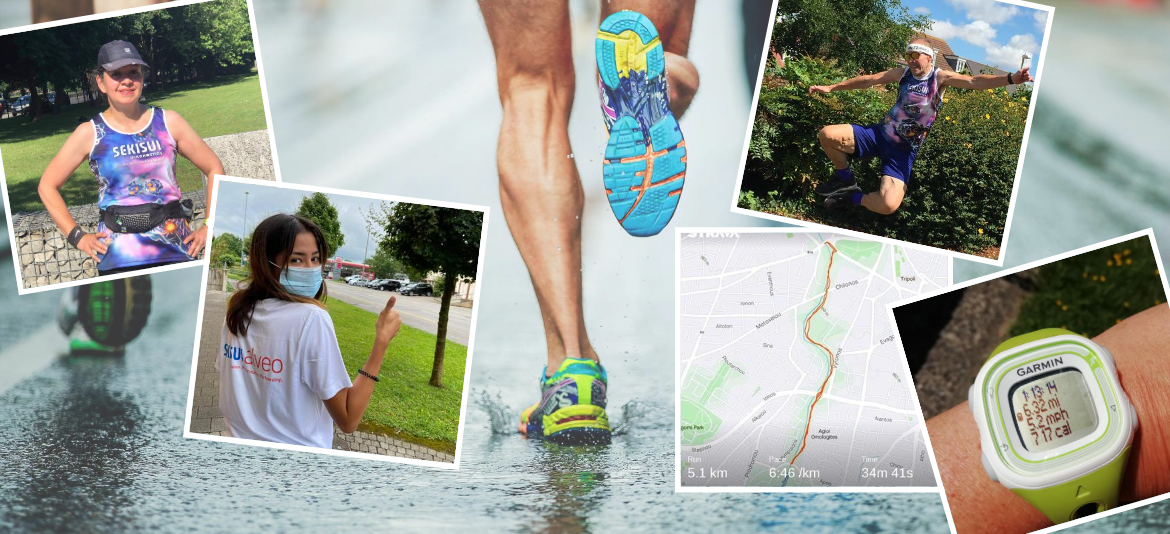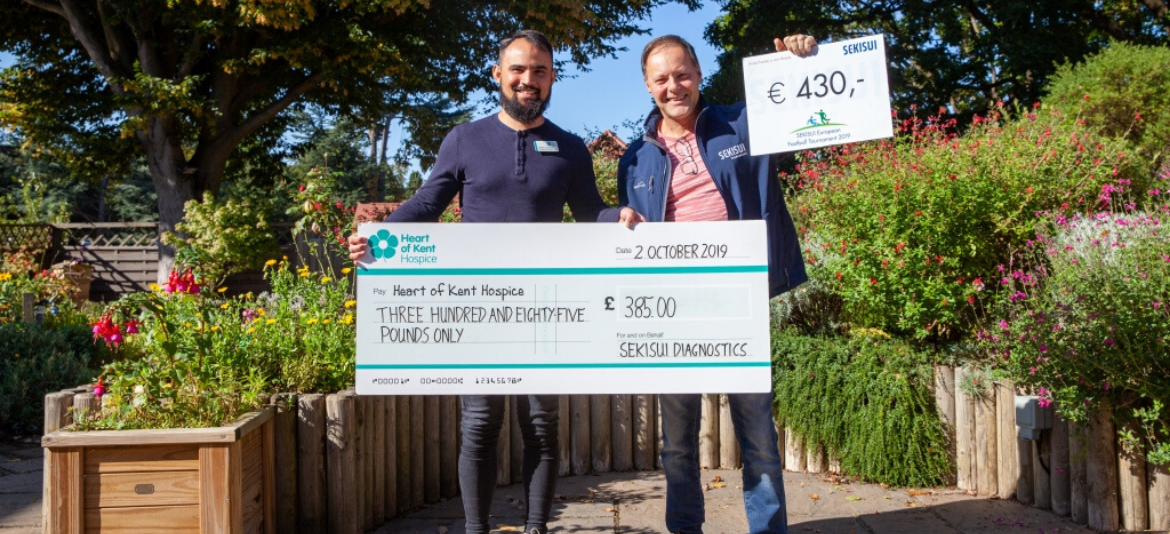Overall, there are three important things, if you are working in an intercultural environment like a European SEKISUI company. First of all, you must have business skills to represent your position. Then, you need local language skills and of course English language skills to understand your co-workers. And last but not least, you should own intercultural communication skills to interact successfully with everyone you’ll meet in your business. But how do you get these skills?
Communication is not only about language and language skills. Your habits and your behavior play a more important role than you might think. Because even if you think, you are acting the right way to e.g. impress your boss. Just this behavior can be totally wrong if your supervisor is from another country and doesn’t understand your actions. That is why SEKISUI offered an intercultural communication workshop to 22 employees and opened up the field of intercultural communication.

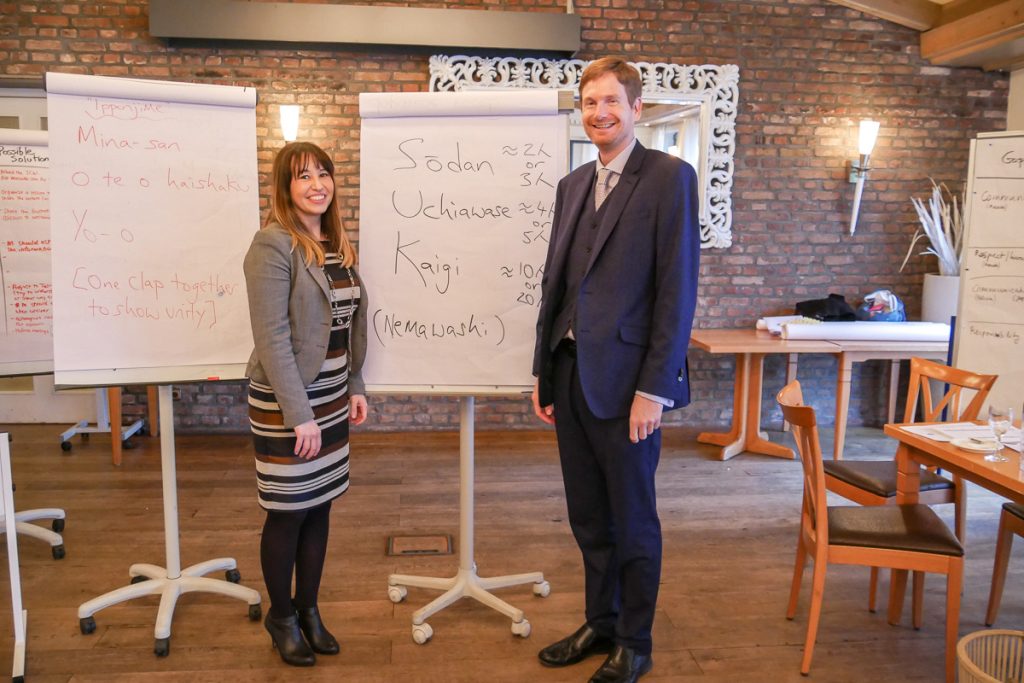
Intercultural skills are a must to achieve results
Ever wondered, how to hand over a business card to a Japanese? How to do smalltalk with your colleagues? Or how to act in an international meeting? The workshop provided the answers.
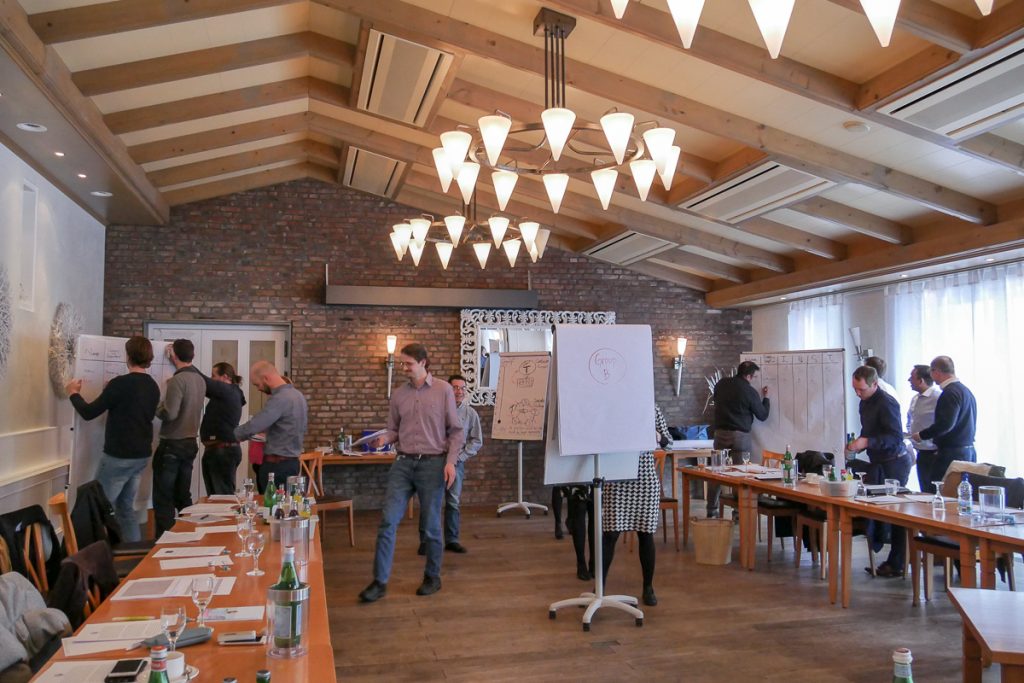
The European participants of the intercultural communication workshop learnt effective intercultural communication by gaining a understanding of tendencies of different cultures. The coaches Brooke and Gaz are both living in Japan for years and because of their European/ American background it was easy for them to understand the participants and their questions.
Objectivity is important
First lesson: It is important to be objective to take the most important first step to understand other cultures. Objectivity is as important as self-reflexion and that is why the participants had to think about theirselves and had to classify their personal styles. Later, they discussed about the differences in small workshop groups.
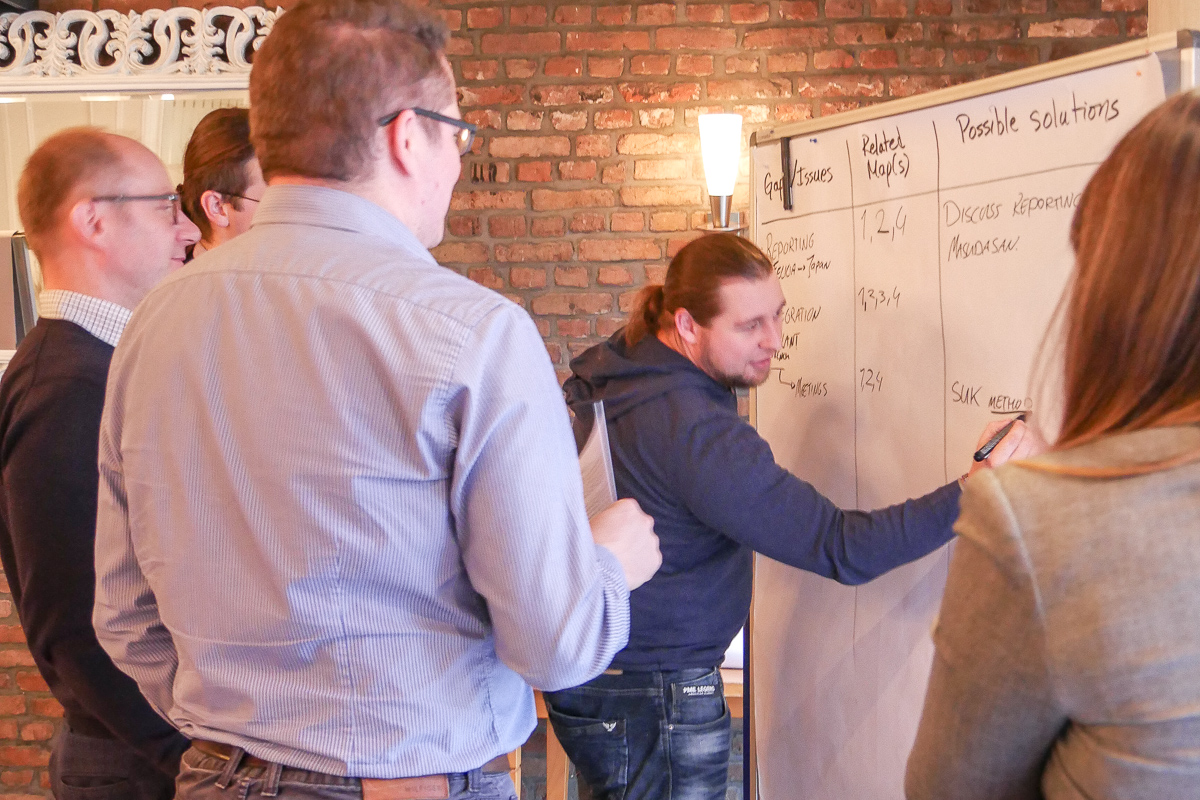
The participants had open discussions with their group members
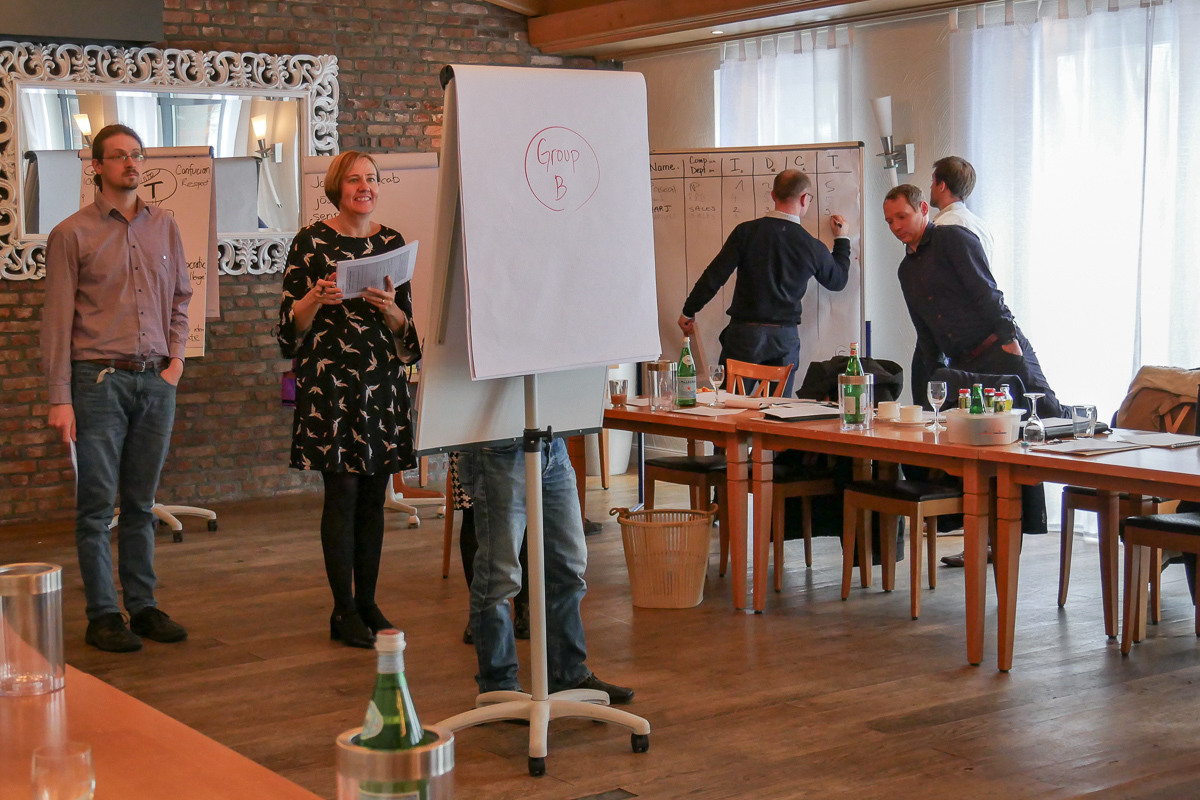
The participants had open discussions with their group members
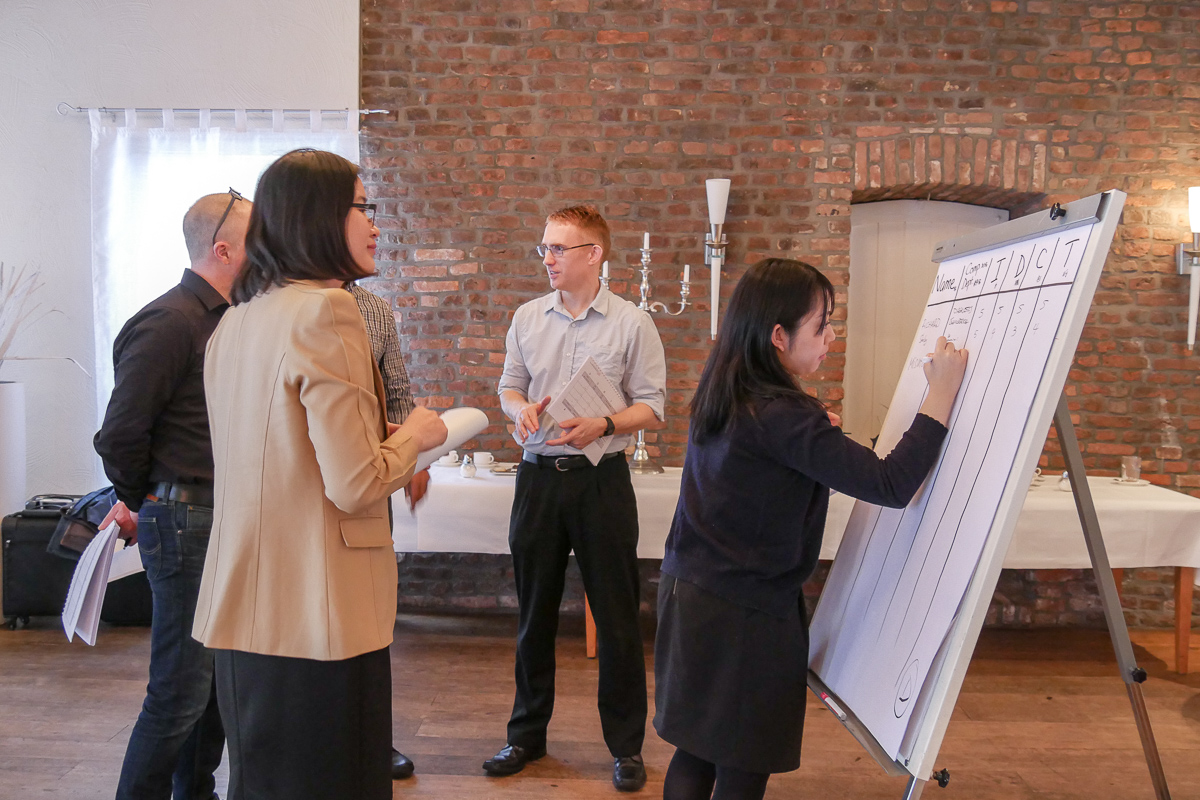
The participants had open discussions with their group members
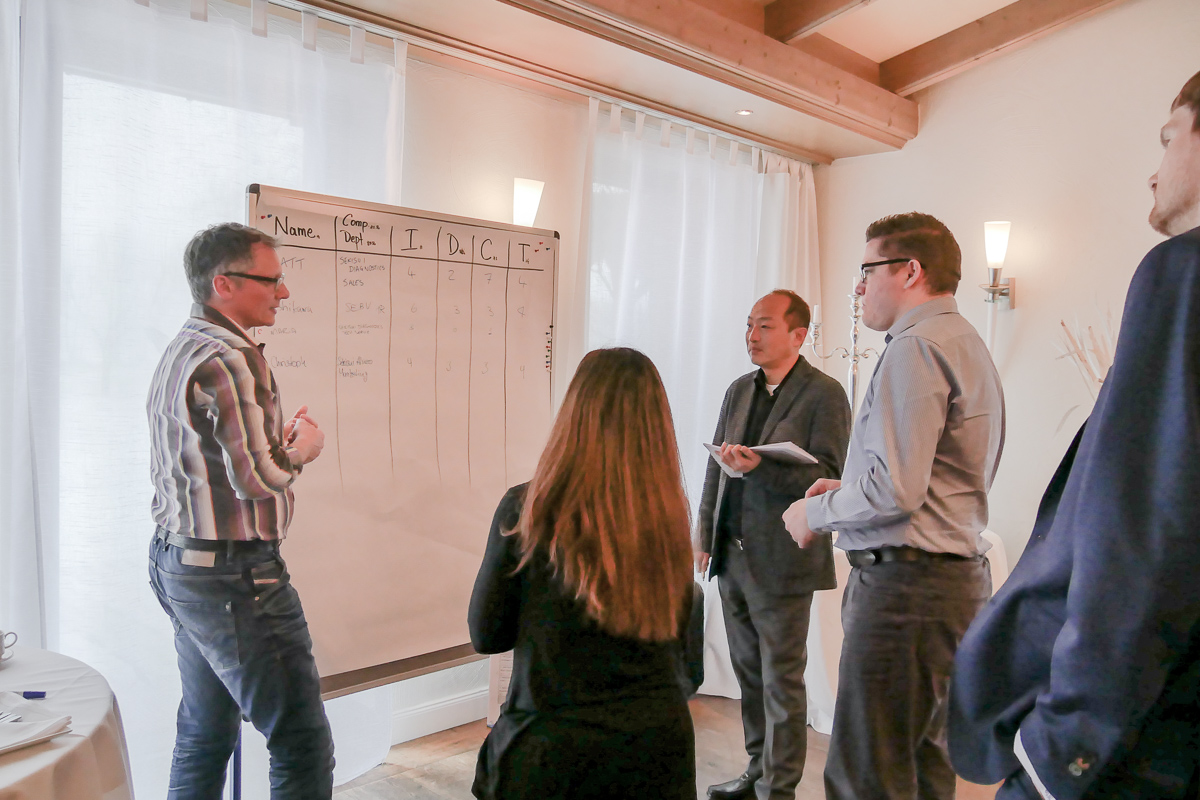
The participants had open discussions with their group members
Different cultural approaches
The coaches descripted familiar business situations and explained why some situations are weird for everyone involved. For example, it depends on the way of education how someone is interacting in business meetings or discussions. If you were educated in a “socratic style” with active contribution (like in Europe), you will probably act like this in a business meeting. If you were educated in a “confucian style” with no contribution but with a lot respect for the speaker (like in Japan), this behavior will remain in meetings and discussions.
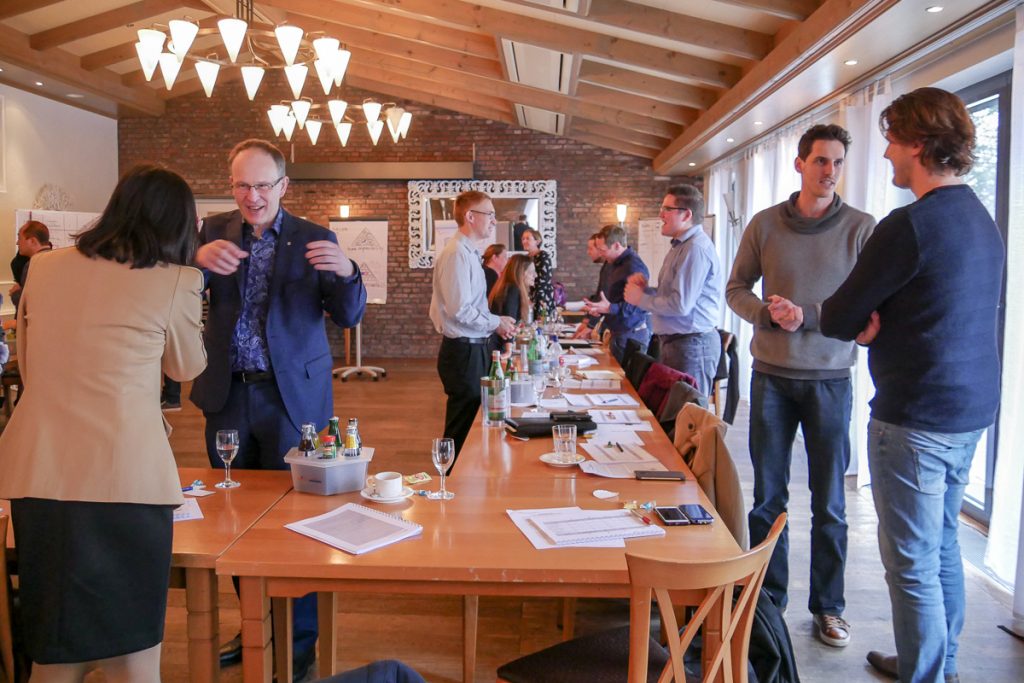
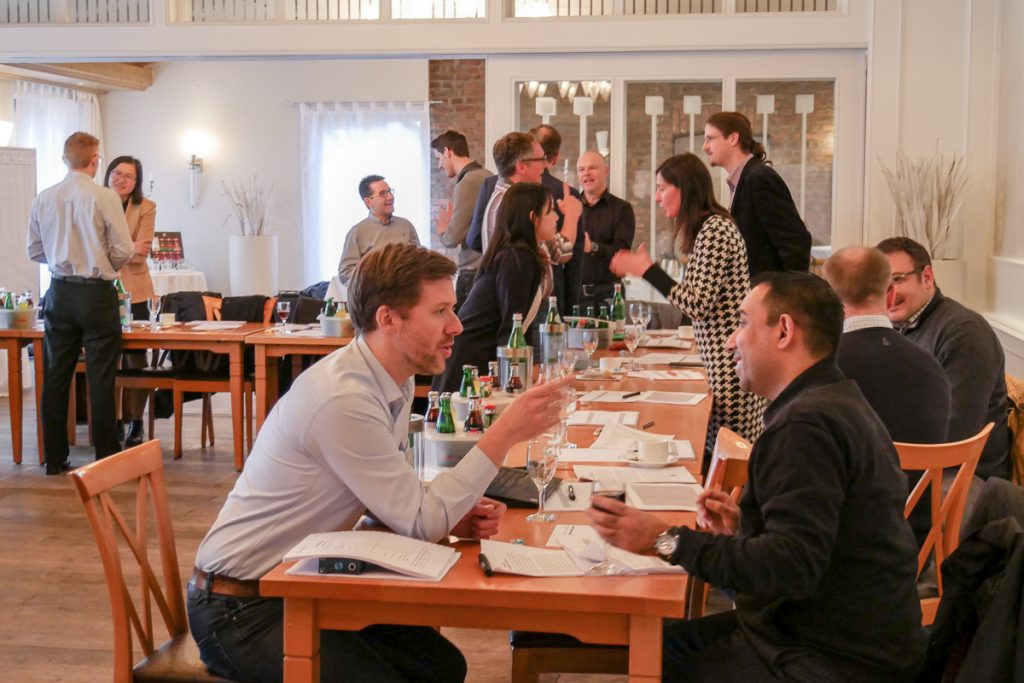
Highlight of the workshop was when the participants had to slip into different roles and convince other participants of their opinion. At this time, it was very noisy in the room. Anyone who ever discussed with a foreign partner or customer is able to understand this situation. But this was a perfect training for all upcoming business challenges. Well played, participants!

